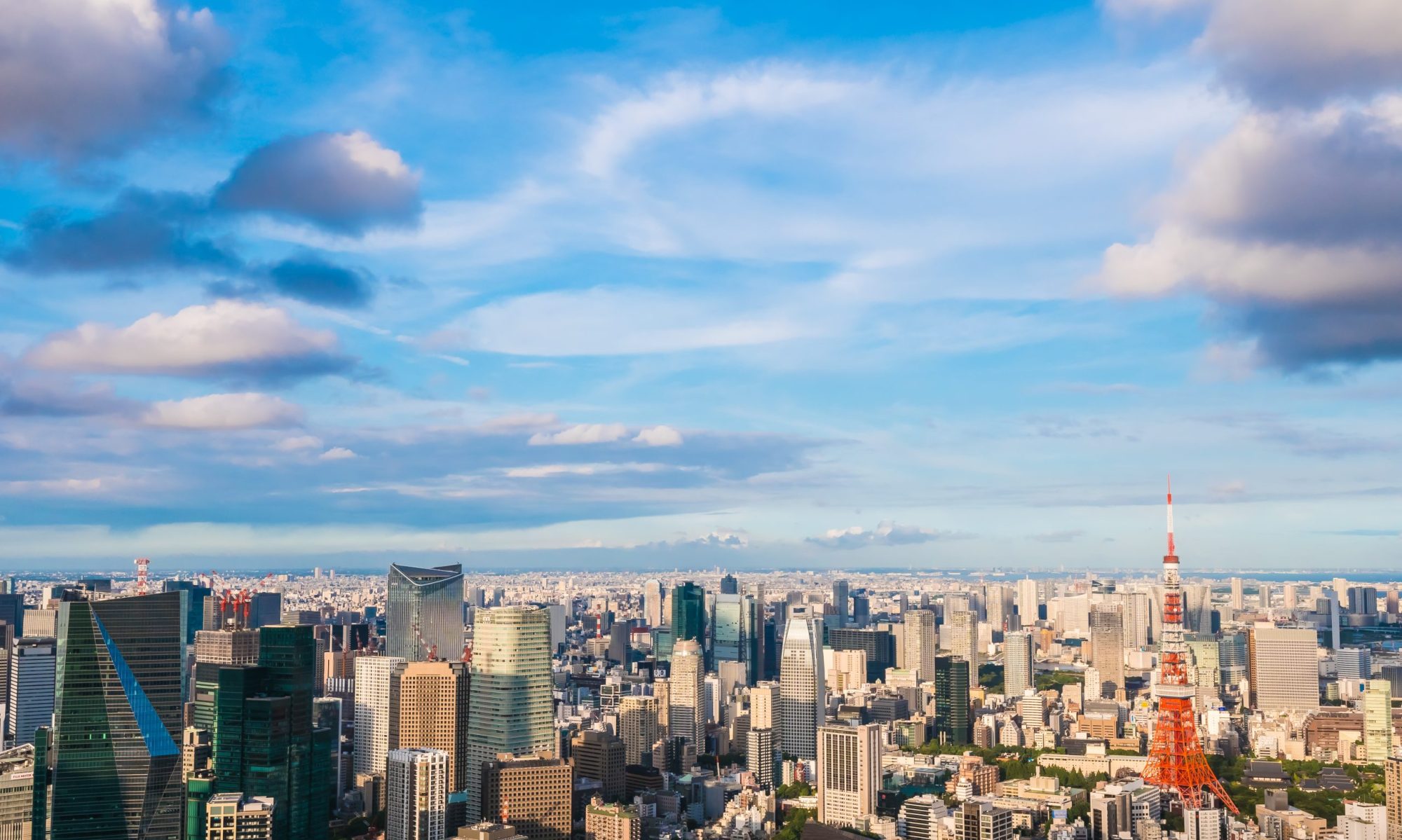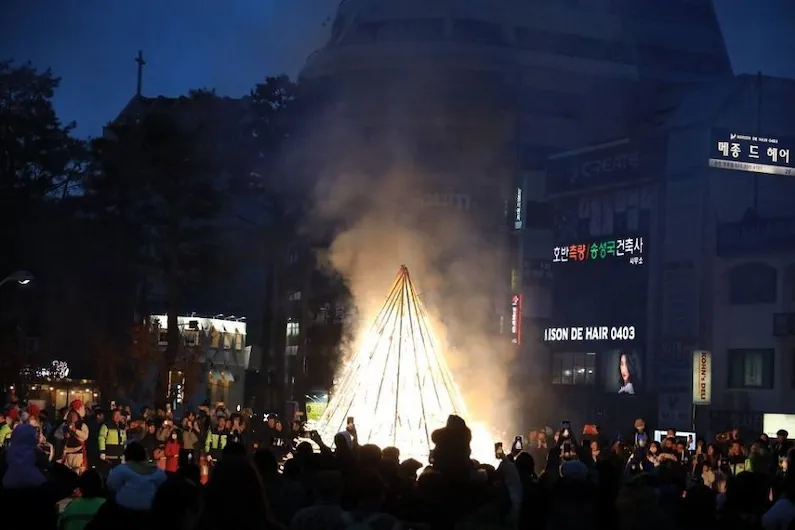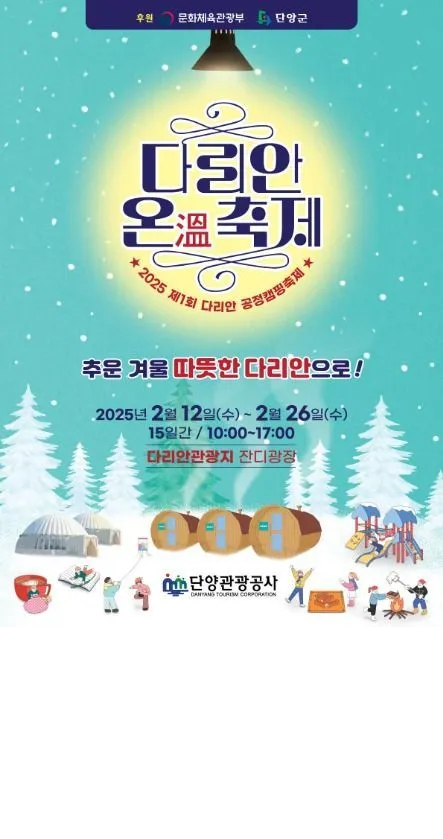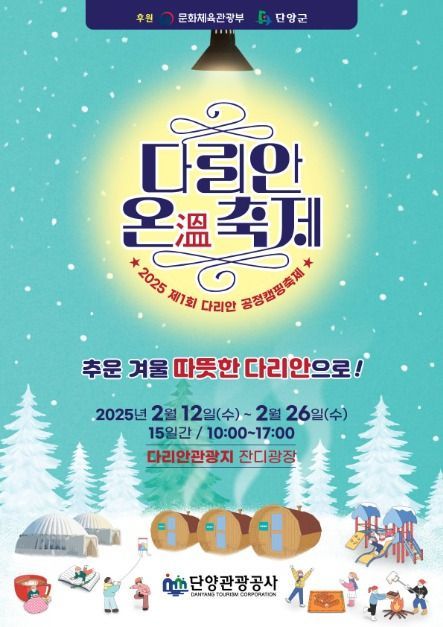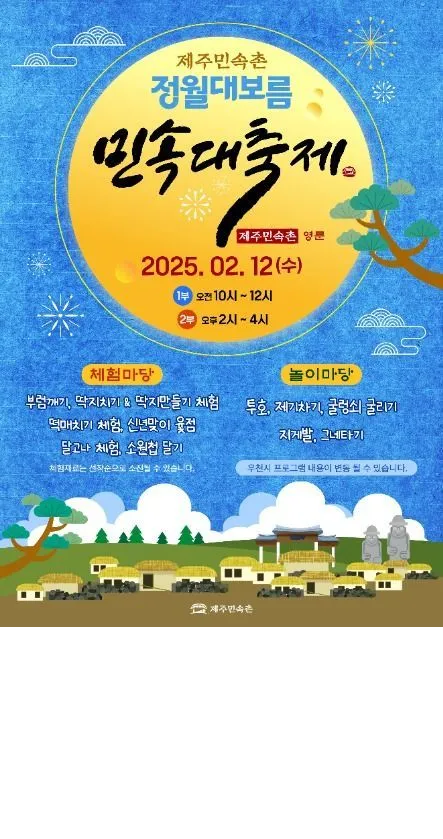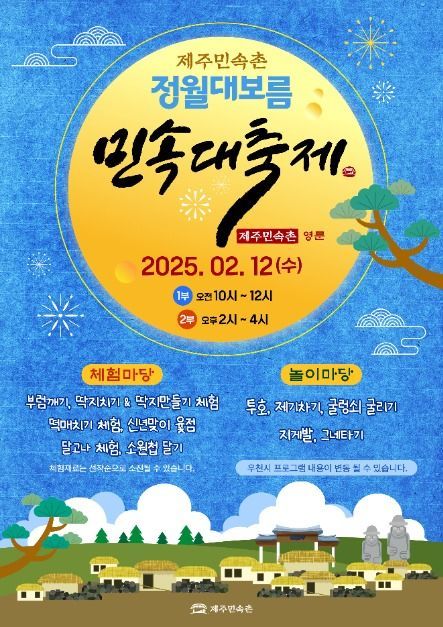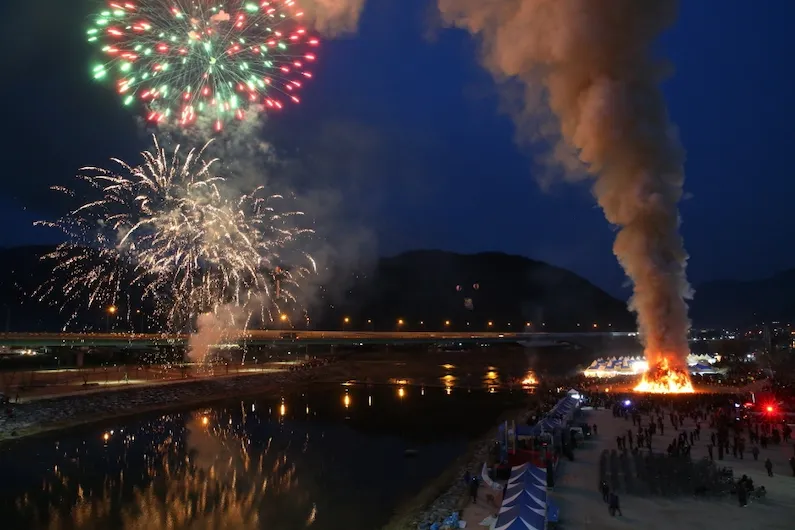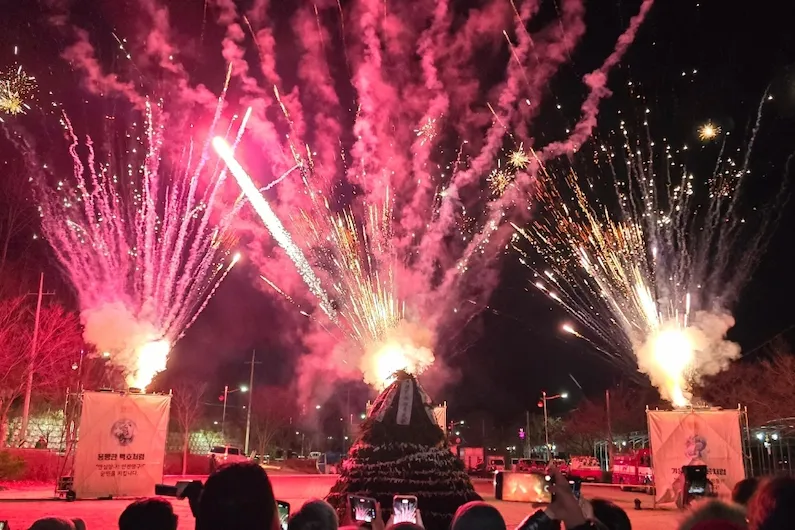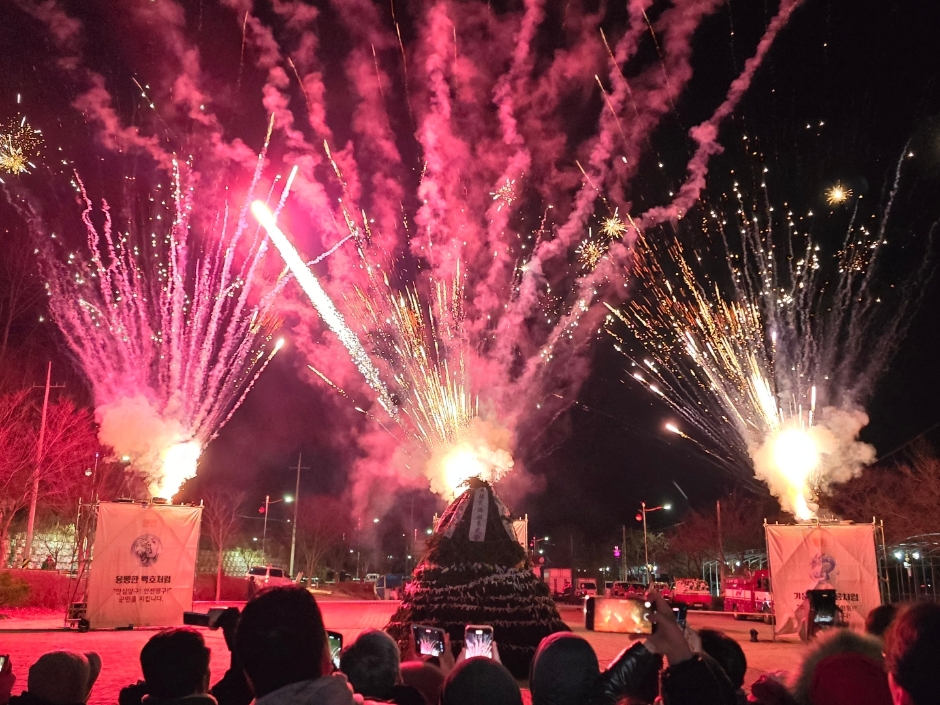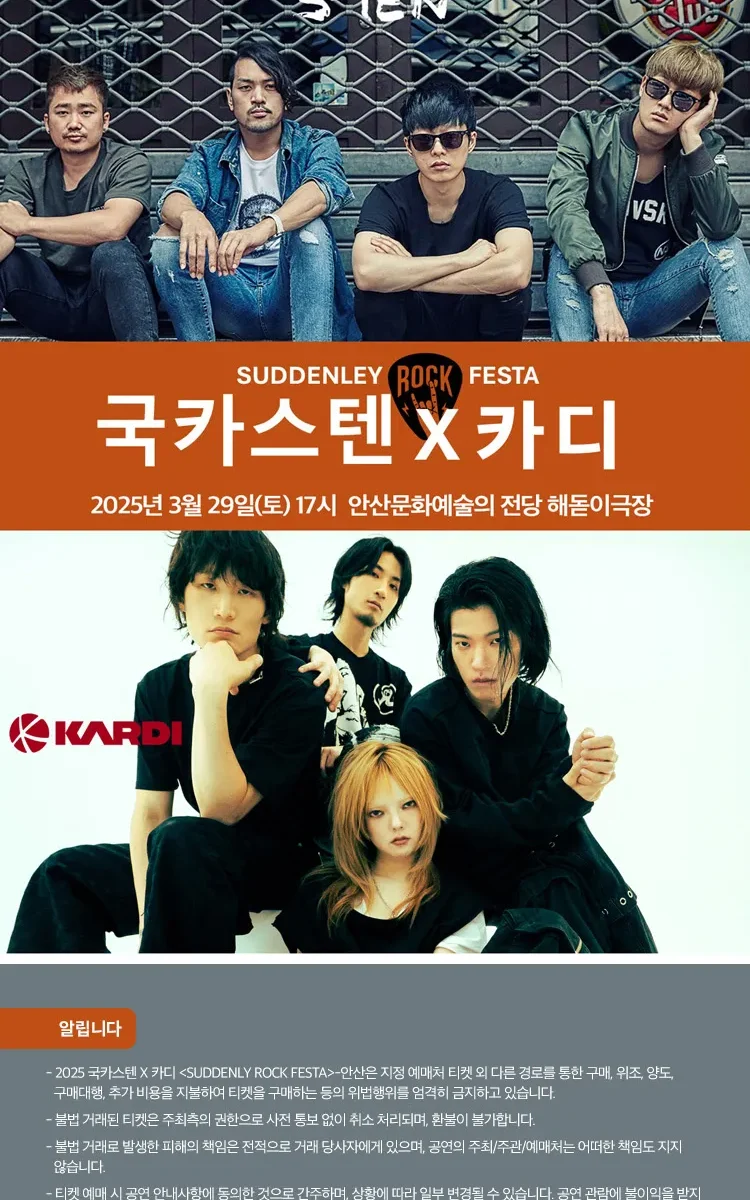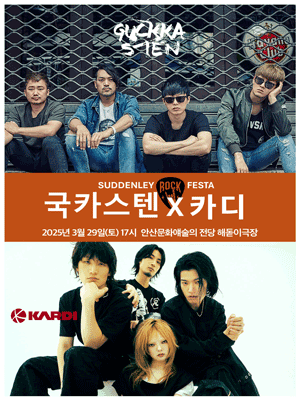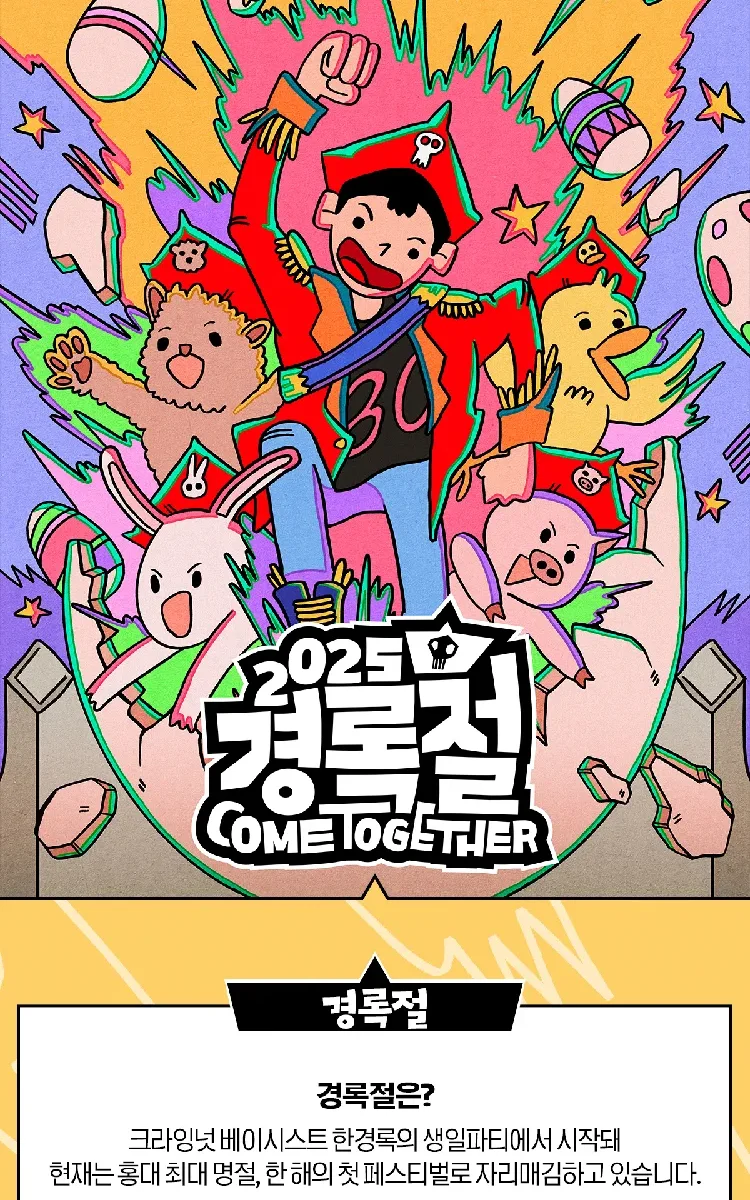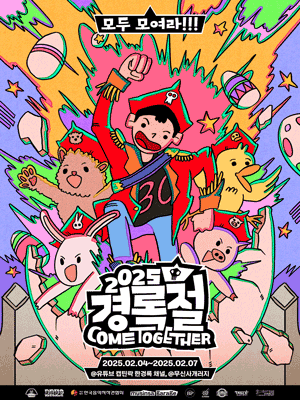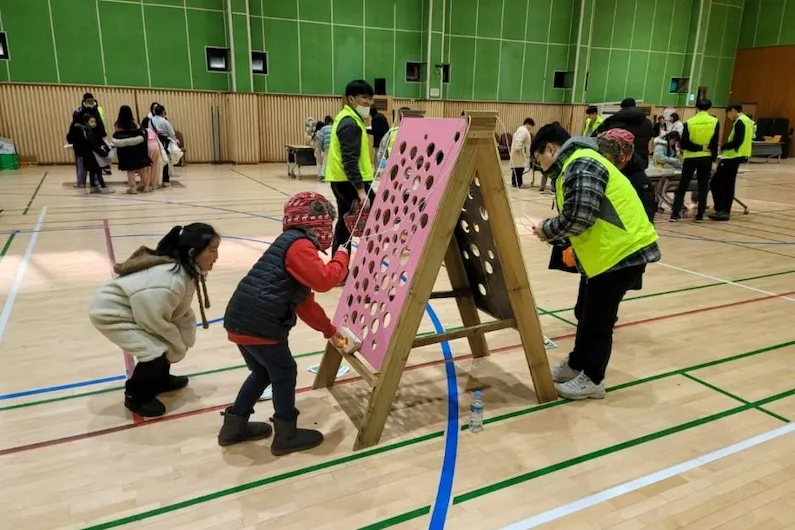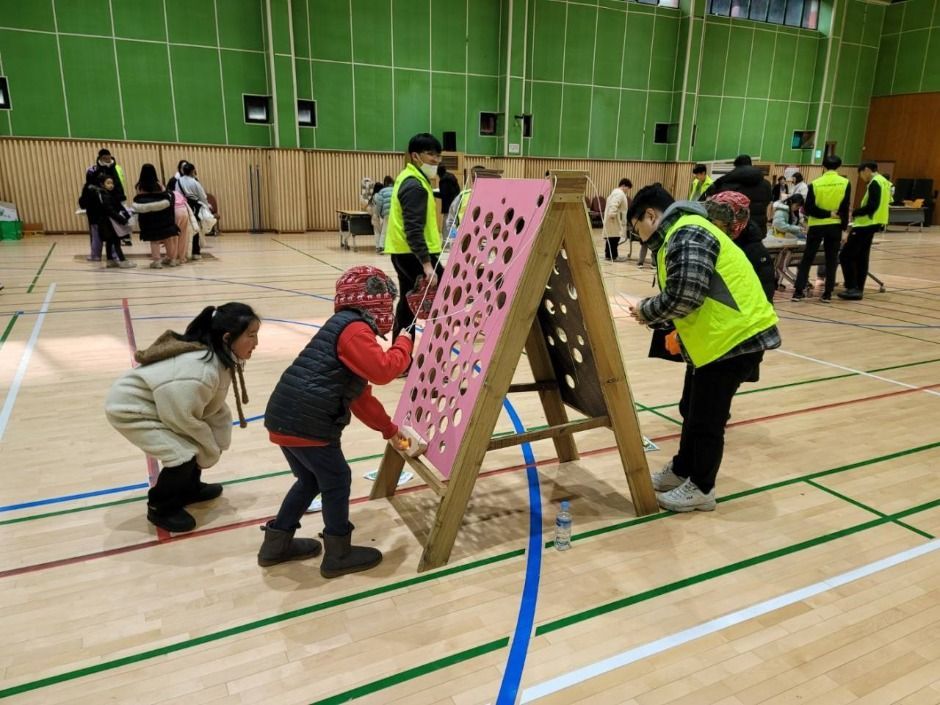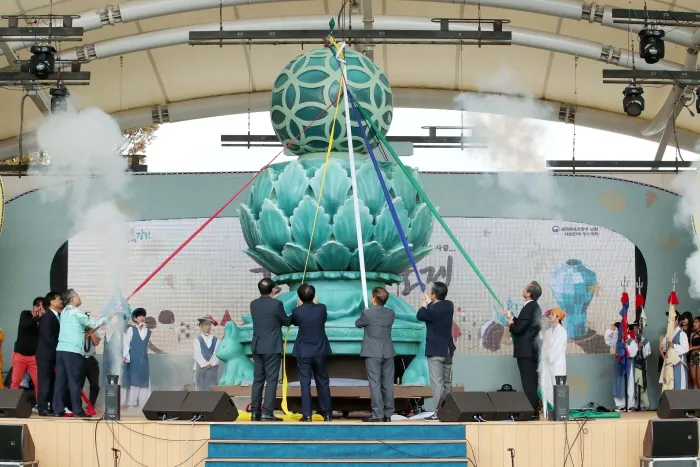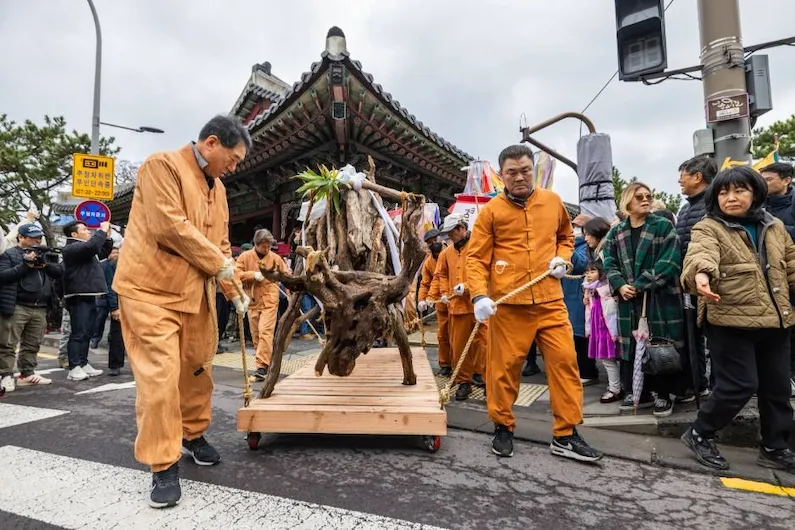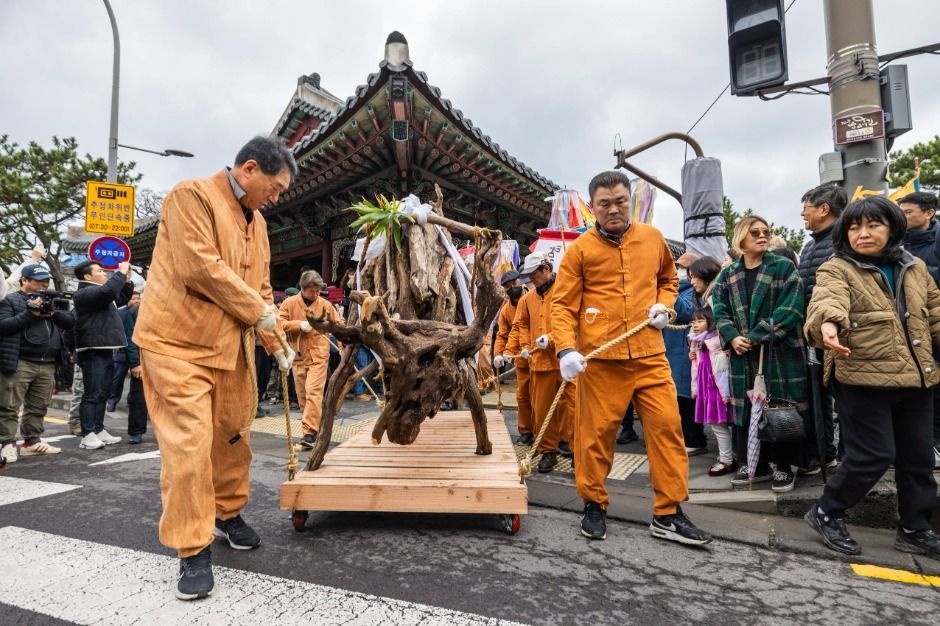Jeongwol Daeboreum Full Moon Festival
🗓️ 2025.02.12 ~ 2025.02.12
The Jeongwol Daeboreum Full Moon Festival, held in Chuncheon-si, Gangwon-do, is a celebration deeply rooted in Korean traditional culture. This event marks a significant day dedicated to prayers for health and abundance throughout the year. The festival’s significance is amplified when experienced collectively, making it a perfect opportunity to immerse oneself in cultural festivities with family and friends.
This year’s festival is thoughtfully designed to blend traditional practices with modern elements, all set against the picturesque natural scenery of Chuncheon. Attendees will have the unique opportunity to engage in a variety of programs under the luminous full moon, fostering a sense of unity and creating lasting memories.
Activities and Performances
The festival offers a rich array of activities, ensuring there’s something for everyone:
- Experiential Events: Participants can partake in traditional activities such as writing wish notes and family precepts, engaging in the custom of bureom cracking (eating nuts for good health), and even having their new year fortunes told. These hands-on experiences provide a direct connection to Korea’s cultural heritage.
- Performances: The festival will showcase vibrant performances, including a joint Dari-gut performance by the Village Nongak and the traditional circle dance Ganggangsullae. These performances are not just entertainment; they are a living display of Korea’s rich artistic traditions.
- Main Events: Highlights of the festival include a video compilation of citizens’ wishes, the sharing of words of blessing, the symbolic burning of the Daljip (moon house), and a spectacular fireworks display. These events are designed to create a communal atmosphere of hope and celebration.
Event Details
- 📍 Address: 18 Subyeon Gongwon-gil, Chuncheon-si, Gangwon-do (Samcheon-dong)
- 🛏️ Accommodation near the event
- 💰 Fee: Free
- 📞 Inquiries: 033-244-5106
The Jeongwol Daeboreum Full Moon Festival is a free event, making it accessible to all who wish to partake in this cultural celebration. It stands out from similar events due to its comprehensive program that seamlessly integrates traditional and modern elements, its location in the naturally beautiful setting of Chuncheon, and its focus on communal participation. Unlike other festivals that might focus solely on either tradition or modernity, this event masterfully blends both, offering a unique experience that is both educational and enjoyable.
For those planning to attend, accommodations are conveniently located near the event site, ensuring a comfortable stay. The festival’s location at 18 Subyeon Gongwon-gil in Samcheon-dong, Chuncheon-si, is easily accessible and provides a serene backdrop for the festivities.
The Jeongwol Daeboreum Full Moon Festival is more than just an event; it is a celebration of Korean culture, a communal gathering, and an opportunity to create cherished memories under the full moon. Whether you are a local resident or a visitor, this festival offers a unique chance to experience the richness of Korean traditions in a vibrant and welcoming setting.
What is Jeongwol Daeboreum?
Jeongwol Daeboreum, or the Great Full Moon Festival, is a Korean celebration marking the first full moon of the lunar new year. This festival is an integral part of Korean culture, featuring customs and rituals intended to bring good fortune, health, and prosperity for the year ahead. It is a time for communities to engage in activities that symbolize the removal of negative influences and the welcoming of positive energy.
A notable custom of Jeongwol Daeboreum is the cracking of nuts, such as walnuts and peanuts, which is believed to strengthen teeth and bring good luck. Another tradition involves eating "bureom," a mix of nuts and grains, thought to promote health and vitality. Participants also engage in "daljip taeugi," the burning of a straw heap or "moon house," which represents the elimination of bad luck and the start of new beginnings.
The festival emphasizes community spirit, with families and neighbors coming together to share food, play traditional games, and enjoy cultural performances. Jeongwol Daeboreum provides an opportunity to appreciate Korean traditions and the significance of community and family in Korean society.
